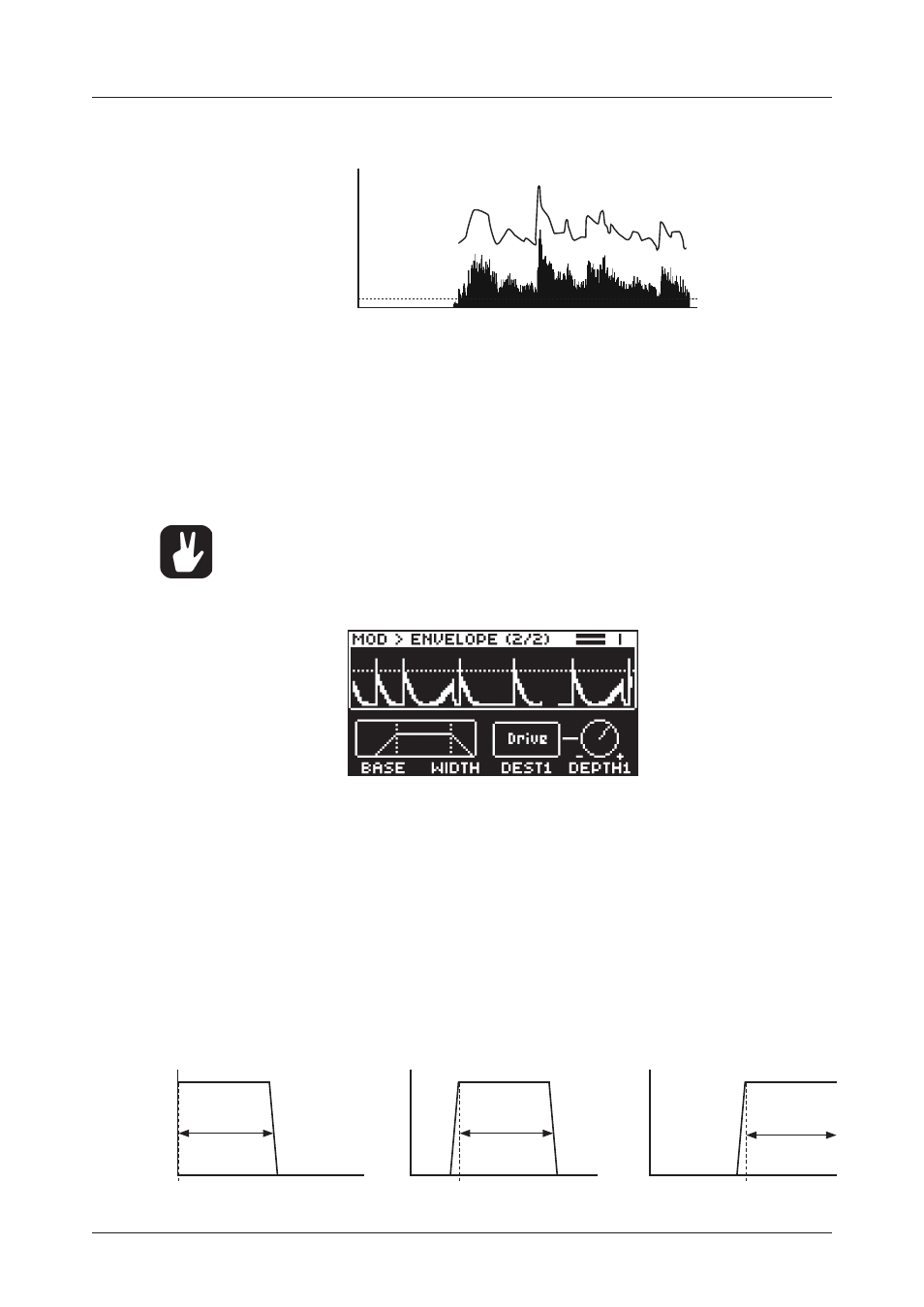Elektron Analog Heat + FX Hybrid Digital/Analog Sound Processor User Manual
Page 34

7. PARAMETER PAGES
34
•
FLW (Follow)
The envelope follows the amplitude of the input signal when it is above the threshold level.
TIME
LEVEL
Trig
Envelope
control signal
Audio signal
ATK
In Follow (FLW) mode, this is the rise time of the envelope follower, i.e. how quickly the follower
rises when the amplitude of the audio increases. In generator mode (AD or AR), this is the attack time
of the generated envelope. The rise time of the underlying envelope follower is set to fastest possible
rise time in these configurations.
REL
In Follow (FLW) mode, this is the fall time of the envelope follower, i.e. how quickly the follower
falls when the amplitude of the audio falls. In generator mode (AD or AR), this is the decay- or release
time of the generated envelope. The fall time of the underlying envelope follower is set to a good,
predefined fall time in these configurations.
TRIG
Sets the threshold level for when the envelope follower triggers the envelope generator and LFO.
Press [YES] + [MOD] to trigger the envelope generator manually. You can also send a
gate signal to the Analog Heat +FX Control In inputs to trigger the envelope generator. For
more information, please see “6.4 CONTROL IN” on page 18.
7.4.2 ENV PAGE 2
The envelope has three modulation destinations.
1. The first destination is set using the parameter
DEST1
.
DEPTH1
controls the amount of envelope
modulation sent to the chosen destination. The first destination can also be set in the MATRIX pa-
rameter page. Select
ENV 1ST
as a source and then select modulation destination and modulation
depth. For more information, please see “7.4.9 MATRIX” on page 36.
2. The second destination is set in the MATRIX parameter page. Select
ENV 2ND
as a source and
then select modulation destination and modulation depth.
3. The third modulation destination is permanently set to the
FREQ
parameter of the analog filter in
the Heat FX block. The parameter
ENV
on the FILTER/EQ PAGE 1 parameter page controls the
amount of envelope modulation added to the filter cutoff.
The envelope follower uses a filter to define the frequency span of the input signal that the envelope
follower reacts to. This span is defined by the
BASE
and
WIDTH
parameters.
Examples of how the
BASE
and
WIDTH
parameters affect the filter of the envelope follower:
FREQUENCY
GAIN
Base
Width
FREQUENCY
GAIN
Base
Width
FREQUENCY
GAIN
Base
Width